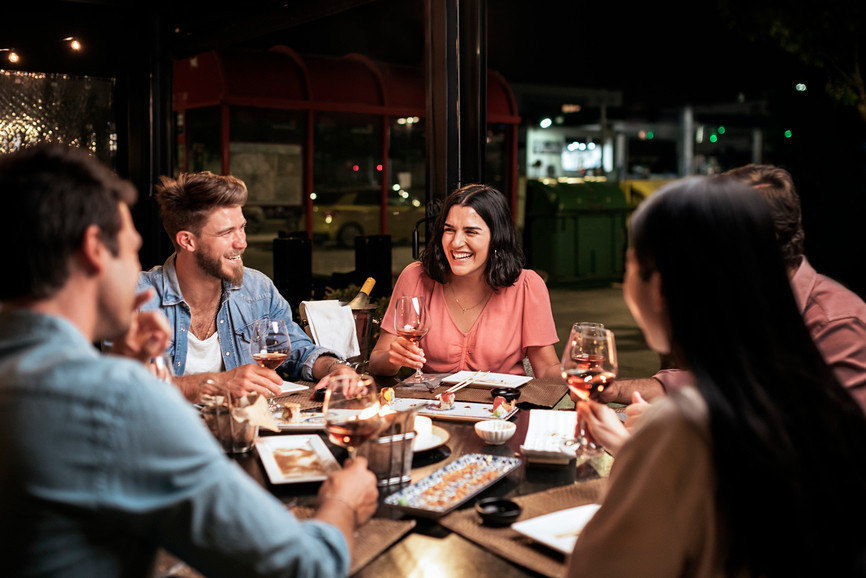The concept is simple: you answer a series of questions about yourself, an algorithm matches your responses against those of people in your town, and the company then books a table for six: you and five people who--at least compared to the other users--are compatible with you.
Always on a Wednesday evening.
It’s not a dating app, though certainly people have found partners that way, says Aya Tohme, country manager for Luxembourg, Switzerland and Belgium. It’s for friendships, networking and, more generally, fighting urban loneliness.
The app is called Timeleft and, since launching in Portugal in May 2023, has been expanding at breakneck speed: France in September; Spain and the UK in January 2024; Belgium, Switzerland, Luxembourg, Germany and Austria in February; the US, the Netherlands and Brazil in March; and Mexico and Argentina (so far) in April. Canada is coming soon.
But this timeline only indicates when the first location in a new country is added; in parallel, more towns in existing countries are going live, bringing the current total to around 60 cities worldwide and some 5,000 strangers coming together every week. “This concept is very scalable,” comments Tohme.
The platform operates in all these places with one skeleton crew of about 20, though that too is rapidly expanding: “We’re hiring two people every week,” says Tohme, who--by herself--operates six cities (Luxembourg City, Brussels, Antwerp, Zurich, Geneva and Lausanne) from her homebase of Paris. The job entails booking a lot of tables for six.
Since Tohme is not a Luxembourg resident, she relies on local people for restaurant suggestions. Asked how she gets in touch with them, she says: “Instagram.”
The experience
Per an existing tradition whereby platforms, popularly dating apps, match people based on personality quizzes or similar metrics, Timeleft starts you off with a 30-question survey. Questions include:
—Are your opinions usually guided by logic and facts or emotions and feelings?
—Do you consider yourself more of a smart or a funny person?
—If your life were a fashion statement, would it be classic and timeless or trendy and expressive?
You are then asked to rate your own levels of introversion, creativity, stress, spirituality, loneliness and other metrics.
On the more practical side, you must also indicate how much money you wish to spend on a restaurant meal, as well as your language preference (currently the options are English or French).
Based on your survey answers, you’re matched at a table, but--in order to build some suspense--not everything about your tablemates is made known to you. On Tuesday evening, the first details are released: what percentage of your table hails from what country, as well as everybody’s individual astrological sign and sector of professional activity. On Wednesday morning, 9:00am, the name and location of the restaurant are sent to you. In Luxembourg, the reservations are made for 8:00pm.
The app provides some icebreaking questions as well, which are only unlocked when the dinner begins.
The goal: 600 in Luxembourg
In Luxembourg, about 70-80 people currently participate every Wednesday evening. “My goal in Luxembourg is to have 500, 600 people every Wednesday night,” says Tohme.
It’s also one of the rare cities, Tohme adds, where there are more international than local people (which will come as no surprise). Interestingly, in the grand duchy some 60% of diners are women versus 40% men.
A single ticket, i.e. one dinner match on the platform, costs €12.99 (Timeleft doesn’t deal with meal payment at all). You can also buy batches of tickets: €19.99 for a month’s worth; €49.99 for three months’ worth; or €69.99 for six months’ worth.
The platform makes money off these tickets, obviously, as well as through deals with restaurants (for a fee, Timeleft will agree to send them a certain number of bookings per month) as well as what Tohme calls “brand activation,” which includes partnerships (revenue shares) with beverage companies and the like.
Visit the Timeleft website .
